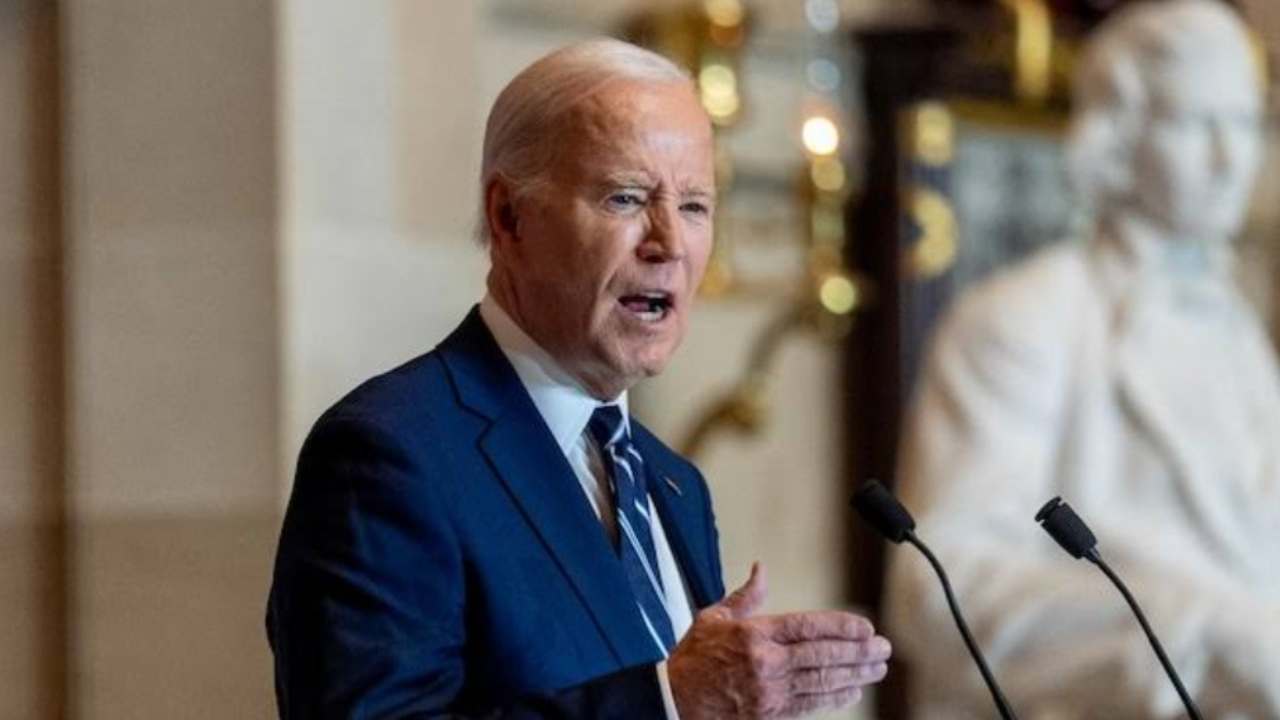On Sunday, the U.S. Senate revealed a $118 billion bipartisan border security bill, which includes assistance for Ukraine and Israel. However, it faced immediate resistance in the House of Representatives.
President Joe Biden urged Congress to unite and promptly approve the bipartisan agreement. He specifically commended the migration measures within the bill, emphasizing that the negotiations spanned several months.

House of Representatives Speaker Mike Johnson declared the bill “dead on arrival” upon reaching his chamber.
“This bill is even worse than we expected, and won’t come close to ending the border catastrophe the president has created,” he said in a statement on X, formerly called Twitter.
Despite opposition from Donald Trump, Democratic and Republican Senate backers of the comprehensive U.S. border security and foreign military aid bill vowed to proceed. Senate Majority Leader Chuck Schumer announced plans to initiate an initial vote on the bill this Wednesday.
The potential enactment of the bill would signify the most substantial alterations to U.S. immigration and border security in decades. Progressive Democrats express discontent over the lack of a citizenship pathway for the 11 million undocumented individuals, including “Dreamer” immigrants. Independent Senator Kyrsten Sinema informed reporters that the legislation aims to secure the U.S. southern border, proposing the temporary shutdown of the frontier to most migrants if daily crossing attempts exceed an average of 5,000 over seven days.
Republican Senator James Lankford, a bill negotiator, anticipates the border remaining closed for approximately three weeks as immigrant arrivals decrease.
The bill allocates $20.23 billion for border security, along with substantial funding for global initiatives, including $60.06 billion for Ukraine, $14.1 billion for Israel’s security, $2.44 billion for U.S. Central Command in the Red Sea conflict, and $4.83 billion for U.S. partners in the Indo-Pacific facing aggression from China, as detailed by Senator Patty Murray, Senate Appropriations Committee Chair.
The bill includes an additional $10 billion for humanitarian assistance in conflict zones, covering Ukraine, Gaza, and the West Bank. Notably, it restricts funds from going to the U.N. agency for Palestinians, UNRWA. Funding to the agency has been paused by the Biden administration and other nations due to allegations of some staff involvement in Hamas’ Oct. 7 attacks in southern Israel.
“The priorities in this bill are too important to ignore and too vital to allow politics to get in the way,” Schumer said in a statement. “The United States and our allies are facing multiple, complex and, in places, coordinated challenges from adversaries who seek to disrupt democracy and expand authoritarian influence around the globe.”
The bill’s key overseas security provisions align closely with President Biden’s October request to Congress for additional funds to support Ukraine, Israel, and Taiwan. However, House Republicans have impeded this request, linking it to a shift in immigration policy.
House Republicans, divided over addressing the influx of immigrant arrivals and providing additional aid to Ukraine, face internal disagreements. Speaker Mike Johnson plans to hold a vote on a new bill allocating $17.6 billion in military assistance to Israel, with no new funding for Ukraine or U.S. border security.
Senator Lankford aims to garner more House support for the Senate bill, while Senator Schumer highlights the agreement’s focus on frontline personnel, asylum officers, and expedited immigration decisions. Lankford adds that the bill would fund up to 50,000 immigrant detention beds, an increase from the current 34,000.
Supporters of the bill argue that it aims to terminate the controversial “catch-and-release” practice, which critics claim contributes to the high influx of illegal immigrants at the southern border. The approach involves expediting the adjudication of asylum cases rather than swiftly releasing apprehended migrants, preventing them from staying in the United States for extended periods while awaiting hearings. Senate Republican leader Mitch McConnell has backed the negotiations, emphasizing that Republicans would not secure a more favorable deal under a Republican White House.
“The Senate must carefully consider the opportunity in front of us and prepare to act,” McConnell said in a statement.
Senate Majority Leader Chuck Schumer expressed in a news conference that he had never collaborated as closely with long-term Senate colleague Mitch McConnell as on the bill. Schumer acknowledged that there were numerous instances during the negotiations when it seemed like the discussions had broken down.

The Bill Faces Opposition From The Right-Wing
Despite this, right-wing Republicans remain skeptical of the new Senate bill.
“Here’s what the people pushing this ‘deal’ aren’t telling you: It accepts 5,000 illegal immigrants a day and gives automatic work permits to asylum recipients — a magnet for more illegal immigration,” House Majority Leader Steve Scalise said on X.
Some congressional Republicans suggest that President Biden could implement desired changes to immigration policy through executive action, despite initially calling for legislative measures. Immigration ranks as the second-largest concern for Americans, particularly among Republicans, according to a Reuters/Ipsos poll. Approximately 2 million migrants were arrested by the U.S. Border Patrol at the border in fiscal year 2023.
Former President Trump, leading the Republican nomination race, heavily emphasizes opposition to immigration in his campaign.
Additionally, House Republicans are advancing an impeachment effort against Homeland Security Secretary Alejandro Mayorkas, Biden’s top border official.

